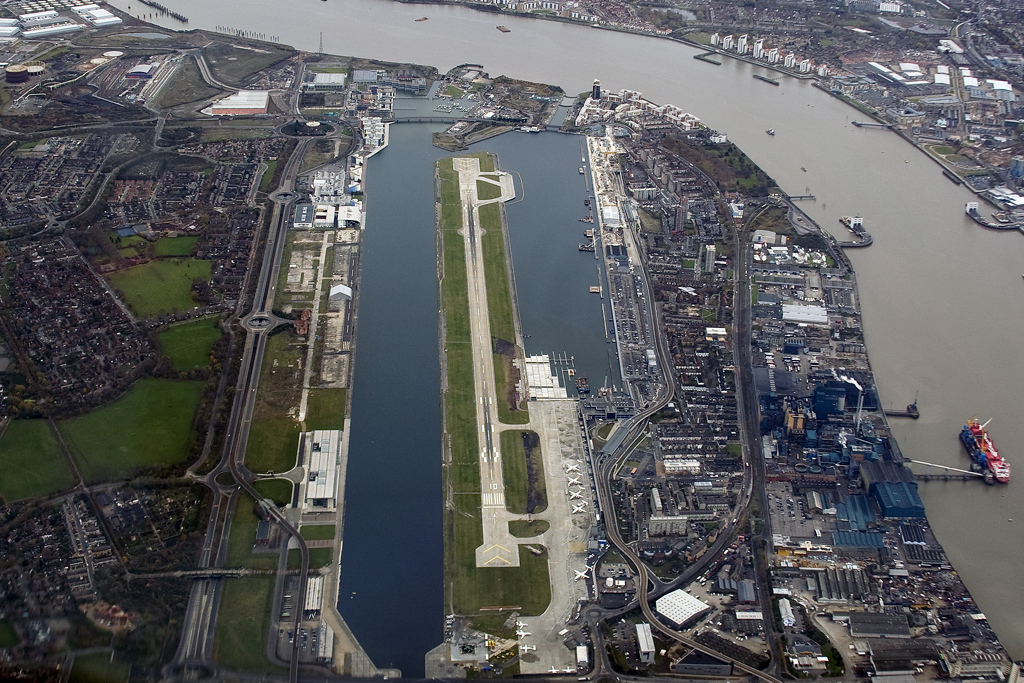The pandemic’s devastating impact on the UK aviation industry has been laid bare in new research highlighting the reduction in passengers using British airports. 
London City Airport
Research by travel website MyBaggage.com revealed the true scale of the massive decline in passengers using our airports during 2020 compared to the previous year.
The figures reveal the scale of Covid’s impact on the aviation industry with airlines estimated to have lost a staggering £20bn last year.
With Governments across the globe limiting air travel there was an overall fall of 75% in passengers using UK airports during 2020 with some hit more severely than others.
Researchers for MyBaggage.com looked at Britain’s 15 busiest airports in 2019 and compared CAA (Civil Aviation Authority) data for 2019 and 2020 to measure the impact of the pandemic.
The biggest fall was seen at London City Airport where passenger numbers plunged 82.3% from 5,122,000 in 2019 to just 908,105 during 2020.
Leeds Bradford Airport saw the second largest reduction in passenger numbers, losing 81.2% of travellers with a drop of 3,992,000 in 2019 to only 751,048 in 2020.
East Midlands Airport experienced the third largest drop in passengers in percentage terms, a loss of 80.7% with 4,674,000 people using the airport in 2019 compared to only 900,832 last year.
The UK’s largest airport, London Heathrow, recently reported a £2bn loss in revenue and the new study shows passenger numbers there were down by 72.7%, going from 80,887,000 to 22,109,550 across the two years.
Gatwick had an even greater passenger reduction in percentage terms with numbers falling 46,575,000 to 10,171,867, a reduction of 78.2%.
In Scotland, Glasgow airport was hit hardest with passenger numbers falling from 8,843,000 in 2019 to only 1,944,981 in 2020 a fall of 78%.
In Northern Ireland, Belfast International saw passenger numbers fall by 72.2% going from 6,278,000 in 2019 to only 1,746,951 during 2020.
While the new research lays bare the devastating economic impact of the pandemic on the UK’s airports, the figures are likely to be welcomed by environmental campaigners with the period seeing a 60% fall in CO2 emissions from aviation.
A spokesman for MyBaggage.com said the research revealed the impact of the pandemic not only on the aviation industry as a whole but also on a regional level around the UK.
He said: “The past 12 months has been nothing short of devastating for the UK aviation industry with a fall in passengers using our airports of around three quarters. But not all airports have seen the same impact, some have definitely been harder hit than others with the number of people travelling down by more than 80% in some locations.
“While these numbers are stark they still don’t show the whole picture. Each of these airports is a regional hub employing thousands of workers. With passenger numbers down to this extent, there will have been a dramatic knock-on effect across many industries.
“The tourism industry has of course been massively impacted but the full economic effect can only be guessed at.
“With the vaccine programme now well underway everyone in the travel industry is hoping for a more positive second half to 2021 and for the aviation industry to recover over the coming months and years.”
Tags: CAA, MyBaggage.com